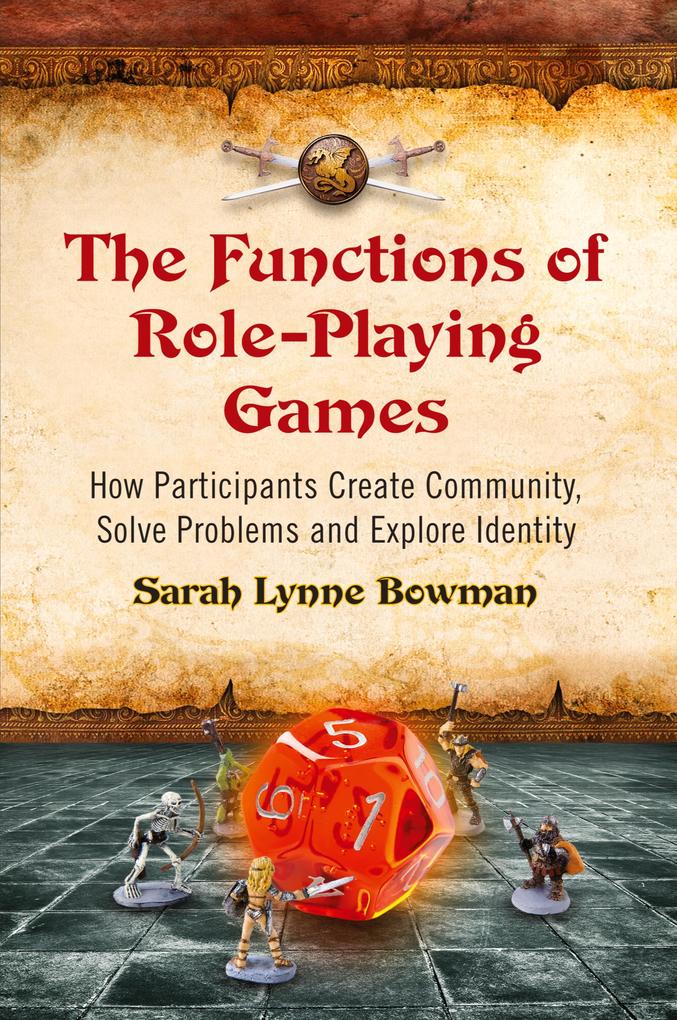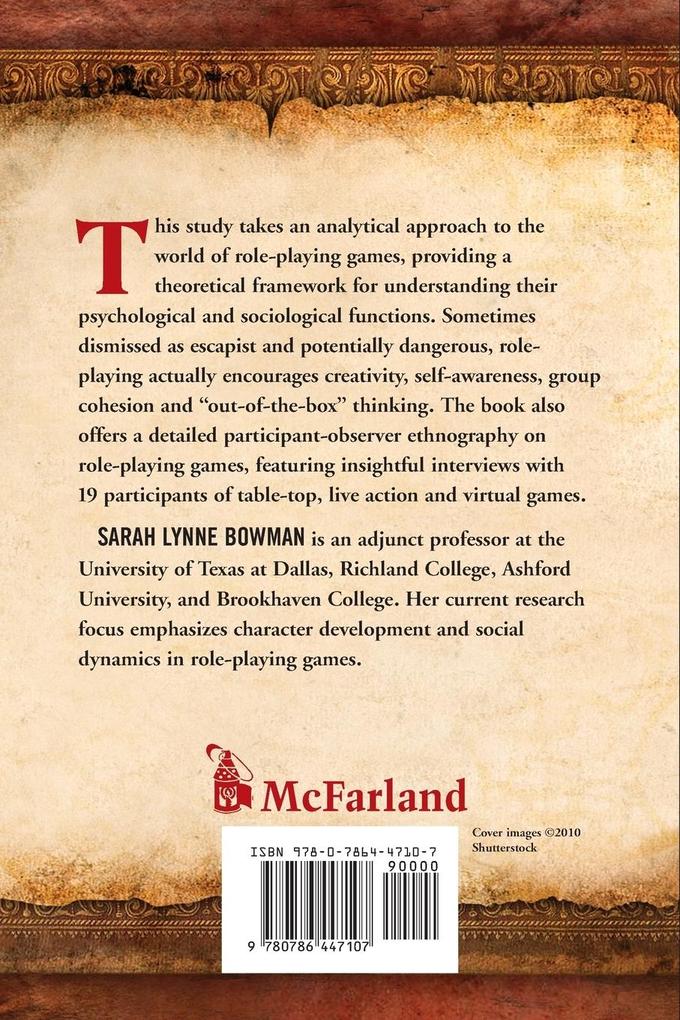
Zustellung: Mi, 21.05. - Sa, 24.05.
Versand in 6 Tagen
VersandkostenfreiBestellen & in Filiale abholen:
This study takes an analytical approach to the world of role-playing games, providing a theoretical framework for understanding their psychological and sociological functions. Sometimes dismissed as escapist and potentially dangerous, role-playing actually encourages creativity, self-awareness, group cohesion and "out-of-the-box" thinking. The book also offers a detailed participant-observer ethnography on role-playing games, featuring insightful interviews with 19 participants of table-top, live action and virtual games.
Inhaltsverzeichnis
Table of Contents
Acknowledgments
Preface
Introduction
1. Historical Evolution and Cultural Permutations
2. Role-Playing in Communal Contexts
3. Interactional Dynamics in Role-Playing Games
4. Role-Playing as Scenario Building and Problem Solving
5. Tactical and Social Problem Solving
6. Role-Playing as Alteration of Identity
7. Character Evolution and Types of Identity Alteration
Conclusion
Appendix: Interview Questionnaire
Chapter Notes
Bibliography
Index
Acknowledgments
Preface
Introduction
1. Historical Evolution and Cultural Permutations
2. Role-Playing in Communal Contexts
3. Interactional Dynamics in Role-Playing Games
4. Role-Playing as Scenario Building and Problem Solving
5. Tactical and Social Problem Solving
6. Role-Playing as Alteration of Identity
7. Character Evolution and Types of Identity Alteration
Conclusion
Appendix: Interview Questionnaire
Chapter Notes
Bibliography
Index
Produktdetails
Erscheinungsdatum
07. April 2010
Sprache
englisch
Seitenanzahl
218
Autor/Autorin
Sarah Lynne Bowman
Verlag/Hersteller
Produktart
kartoniert
Gewicht
361 g
Größe (L/B/H)
229/152/14 mm
ISBN
9780786447107
Entdecken Sie mehr
Bewertungen
0 Bewertungen
Es wurden noch keine Bewertungen abgegeben. Schreiben Sie die erste Bewertung zu "The Functions of Role-Playing Games" und helfen Sie damit anderen bei der Kaufentscheidung.











